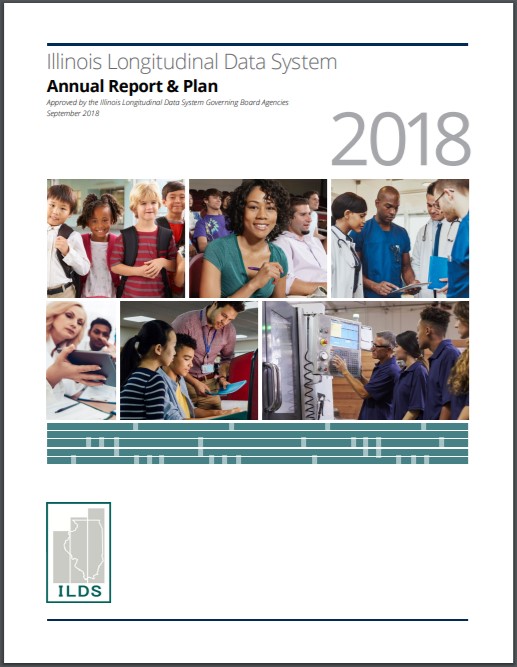
The Illinois Longitudinal Data System (ILDS) Governing Board has released its 2018 Annual Report & Plan. The document reports recent intra- and inter-agency progress towards ILDS priorities and shares the Governing Board’s plans for FY19.
Committed to engaging prospective data users, the Governing Board has published the ILDS User Guide version 1.0. This is a living document that provides background information on the ILDS, describes the agency data available for request and linkage, and outlines the data request process. Access the User Guide as well as agency data dictionaries here.
The ILDS Agencies have made substantial progress to establish the governance system, the continued expansion of the Centralized Demographic Dataset Administrator (CDDA) and Master Client Index (MCI), and proceed on priorities for end-user services. To achieve the state’s objectives for a useful and robust longitudinal data system that supports analysis and understanding of lifelong education and workforce policies and programs, the agencies will remain aggressive with our collective work and continue to track progress against objectives. Ultimately, governance is a continuous process of improvement. The agencies have established an aggressive set of FY 2019 priorities, which they hope will receive broad support and establish a clear direction for future activities.
The first Annual Report & Plan adopted by the Governing Board included a proposed technical architecture and set of end-user priorities that has guided activities since April 2014. The technical architecture consists of these three “layers”:
- Centralized Demographic Dataset Administrator: The CDDA provides services to the ILDS Agencies to match interagency
data and prepare files for end-user services. - Intra-Agency Enhancements: Intra-agency enhancements consist of work internal to the ILDS Agencies to facilitate and enhance interagency data sharing.
- End-User Priority Areas and Services: End-user services consist of the tangible benefits derived from interagency data sharing, including public reports involving P-20 data and analytical tools available to agency staff.


